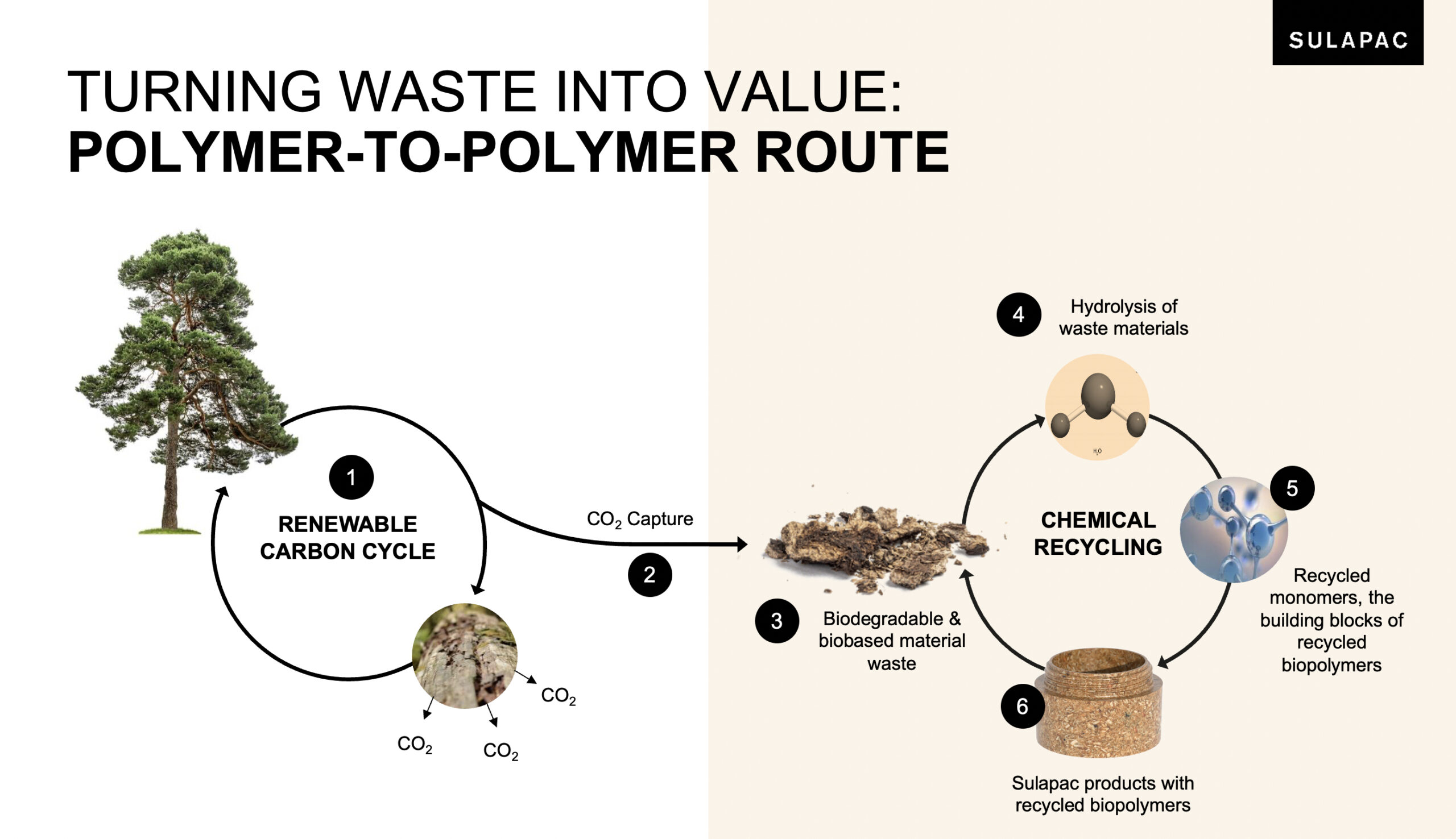October 10, 2023
(press release)
–
Impact on biodiversity is becoming a more and more important factor when assessing the sustainability of a company. NEFCO‘s Biodiversity Pilot Program provides us the best tools and resources to analyse the overall biodiversity impact of the company, Sulapac’s benefits compared to conventional plastics, as well as any unexpected biodiversity risks. Thanks to our participation in the program, organized by NEFCO in collaboration with AFRY, we now have a concrete action plan on how to further improve our operations in order to protect biodiversity. In the future we are also better equipped to demonstrate the value of replacing conventional plastic with Sulapac – recycled Sulapac especially – in the currency of biodiversity. Sulapac Ltd is a material innovation company that aims to reduce plastic pollution and fight climate change by offering sustainable yet functional and aesthetically appealing alternatives to conventional oil-based plastic. By preventing the negative biodiversity impacts of conventional plastic including high carbon emissions, leakage of hazardous substances and microplastic pollution, Sulapac helps conserve biodiversity. One of the reasons why Sulapac wanted to join the NEFCO Biodiversity Pilot Program, was the opportunity to get an even more thorough understanding of the biodiversity benefits of Sulapac materials compared to conventional plastics. The company believes that clearly demonstrated biodiversity benefits would help their customers in decision making and support the adoption of their bio-based, biodegradable, and recyclable alternatives. In addition, Sulapac is always at the forefront of sustainability, and we believe that biodiversity is going to become more and more important in the evaluation of sustainability impact, which is why we were eager to join the program. Furthermore, gaining a better understanding of the overall biodiversity impact of the company and identifying any unexpected biodiversity risks were considered important aspects that the Biodiversity Pilot Program would help to address. Through the Program we gained access to best-in-class tools and resources, and had the opportunity to be part of valuable conversations with other companies that value sustainability. Impact assessment highlights the importance of the company’s circular strategy Sulapac’s company strategy focuses on advancing the circular economy, which is one of the key enablers for ecosystem recovery through reduction of resource consumption. Therefore, one of the pilot’s objects is to demonstrate the expected net-gain effect of the circular model that Sulapac is currently building in cooperation with its partners and customers. Sulapac’s materials are already today made with recycled content and side stream raw materials, and the company’s goal is that all the main raw materials originate from waste or side streams within the next five years. The impact analysis conducted within the Biodiversity Pilot Program highlighted the importance of transitioning from first generation bio-based feedstock to recycled biopolymers. The biodiversity benefits that can be gained by maximizing the use of recycled biopolymers relate mainly to the conservation of terrestrial and freshwater ecosystems. Through the significant CO2 reductions it will also have a positive impact globally, as climate change is playing an increasingly important role in the decline of biodiversity. Concrete actions for biodiversity conservation at scale The next steps in Sulapac’s biodiversity action plan include increasing the recycled content step by step. Sulapac has also set up closed-loop projects to demonstrate the feasibility and value of reusing, collecting and chemically recycling products made of bio-based and biodegradable materials. Furthermore, Sulapac actively informs the policy makers about the importance of an efficient EU-wide chemical recycling infrastructure for bio-based and biodegradable materials, which is crucial for the large-scale replacement of first-generation bio-based feedstock. In terms of comparing Sulapac against conventional plastic, the company has already been able to demonstrate that replacing conventional oil-based virgin plastic with Sulapac material results in significant CO2 savings; in some cases, Sulapac’s GHG emissions are only 6% of the emissions caused by conventional plastic. Another action point to highlight is the replacement of naturally occurring minerals with minerals originating from carbon capture. There are potential severe negative impacts on biodiversity attached to traditionally sourced minerals, which is why the company is committed in finding sustainable replacements, even when minerals are utilized in limited number of products and their share of raw materials is notably low. In addition to these specific actions, Sulapac continues their biodiversity work in their everyday business guided by their mission to save the world from plastic waste, which is fundamental as pointed out in an article by Ghislaine Llewellyn, Deputy Oceans Lead, WWF: “Without a doubt, unchecked plastic pollution will become a contributing factor to the ongoing sixth mass extinction leading to widespread ecosystem collapse and transgression of safe planetary boundaries.”


* All content is copyrighted by Industry Intelligence, or the original respective author or source. You may not recirculate, redistrubte or publish the analysis and presentation included in the service without Industry Intelligence's prior written consent. Please review our terms of use.




